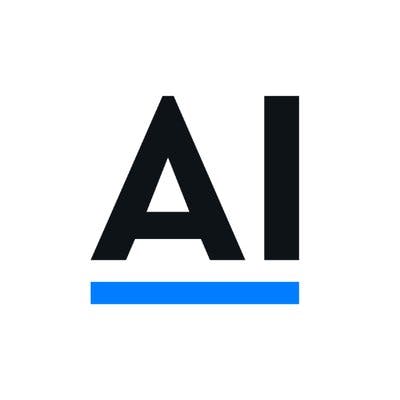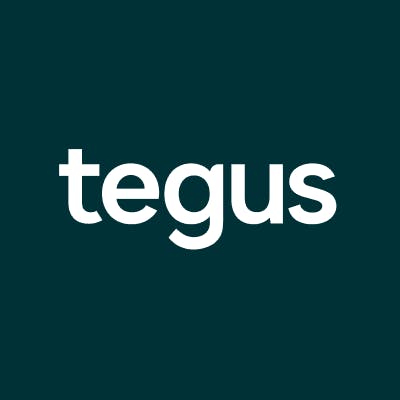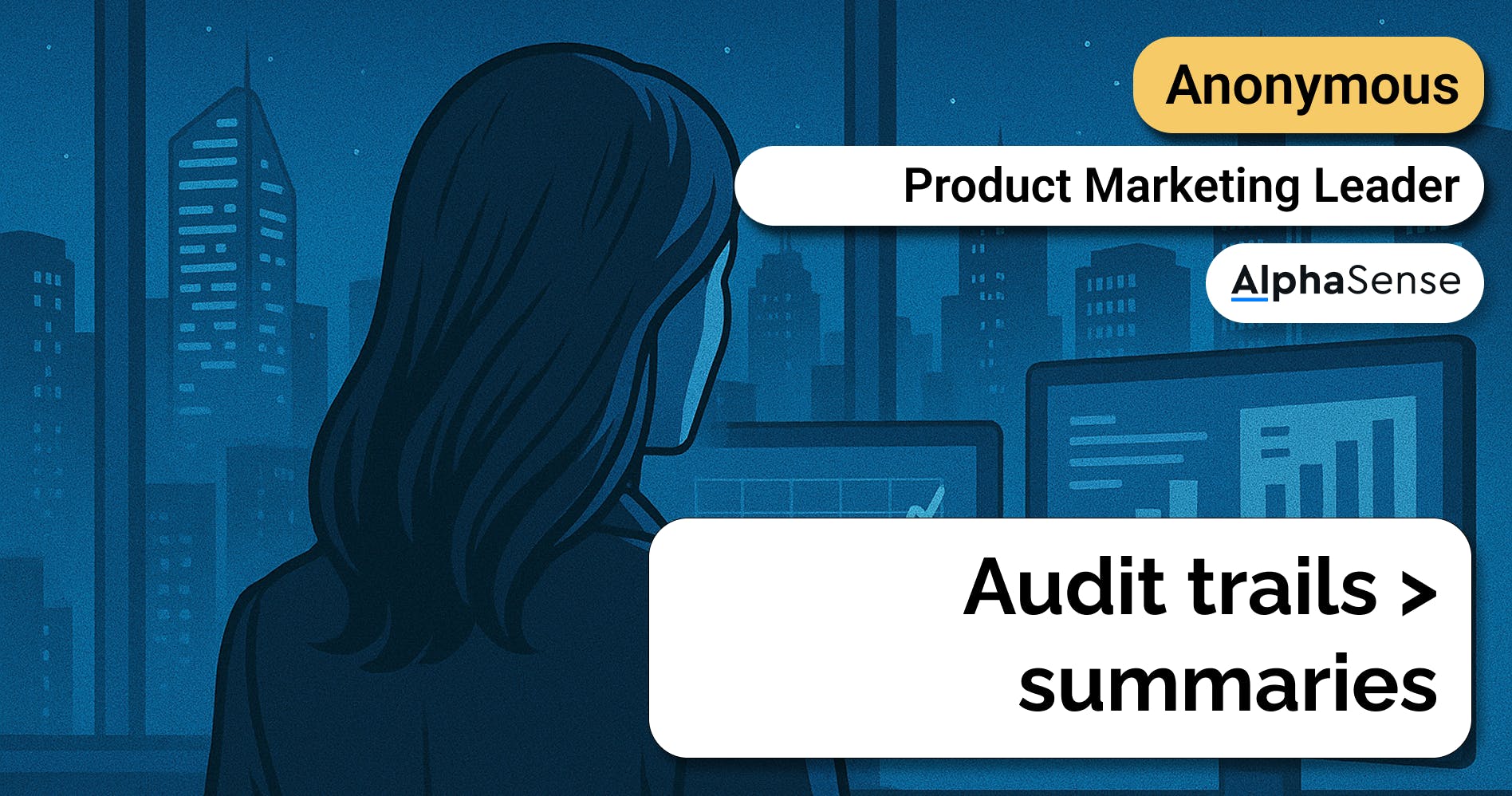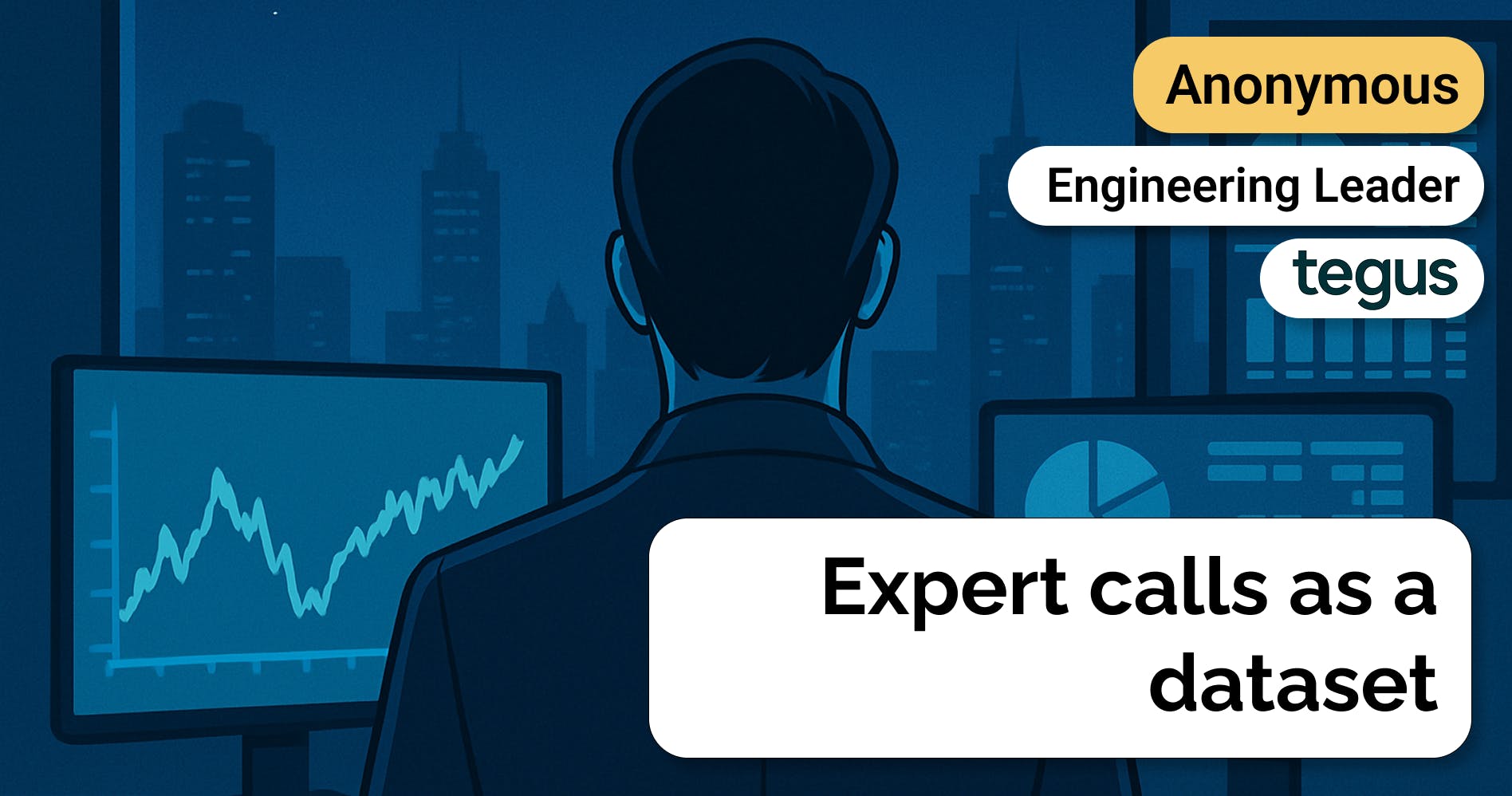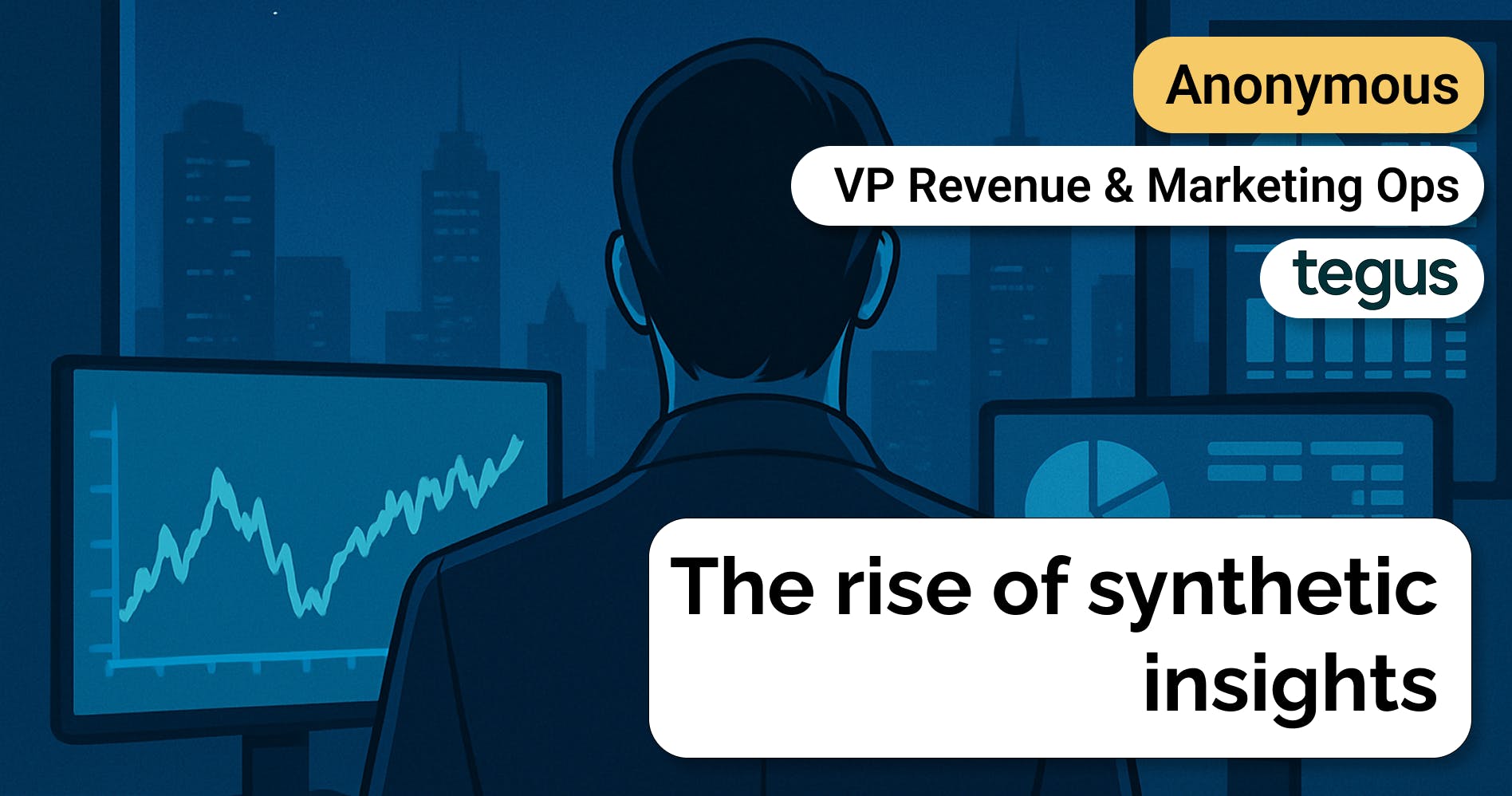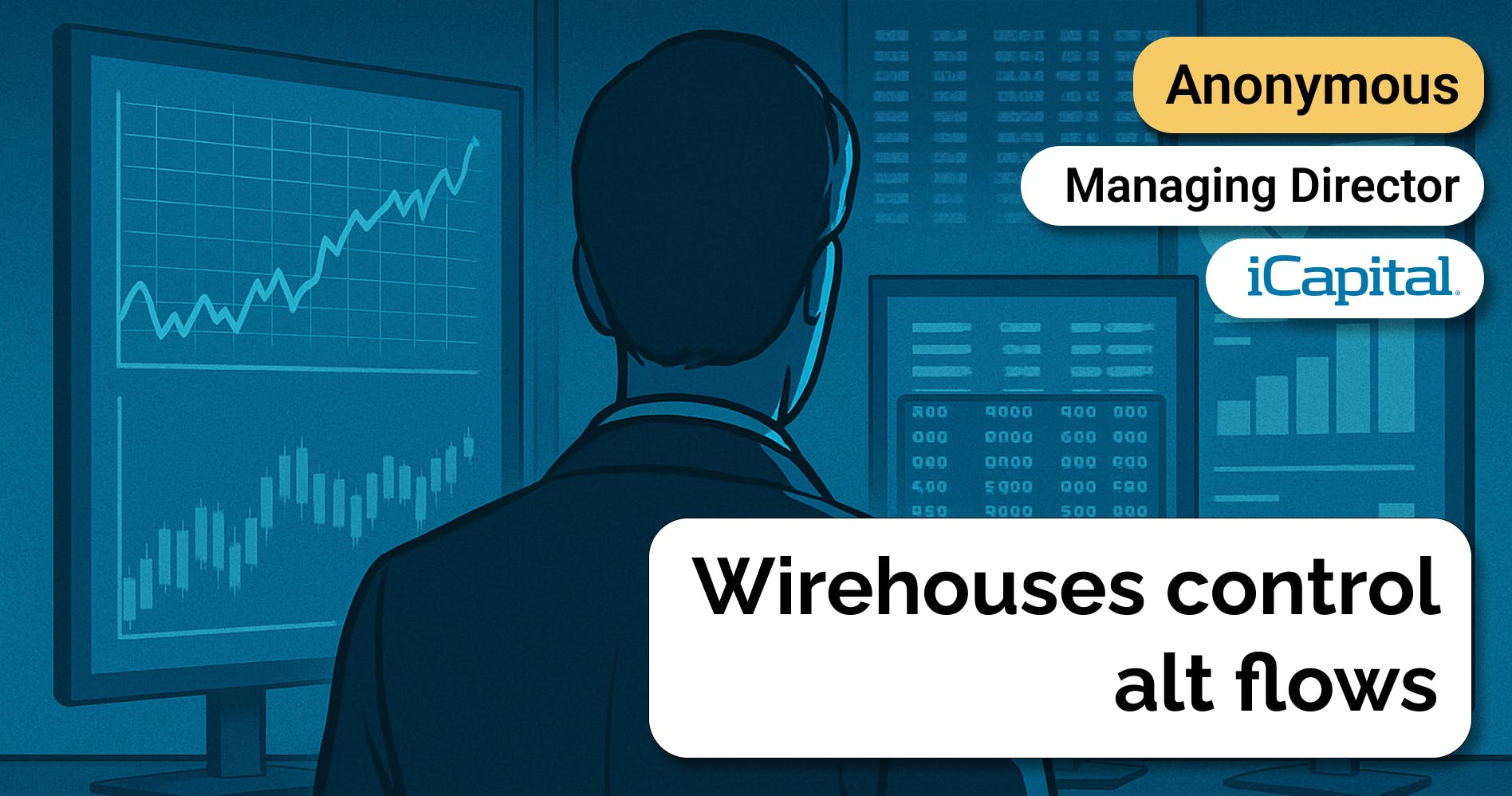Sr. Customer Operations Leader at Tegus on the Costco model of investment research
 Jan-Erik Asplund
Jan-Erik Asplund

Questions
- When you were working in customer ops and account management specifically, what were your core responsibilities?
- Over those six years, as your roles evolved, what did you come to understand about the specific needs and expectations of the investment professionals who relied on Tegus?
- As Tegus expanded that library and diversified beyond tech, how did you balance depth versus breadth?
- Tegus ultimately integrated SEC filings through BAMsec and financial models via Canalyst. What was the strategy behind this shift toward an all-in-one platform?
- Can you share an example of how AI features like transcript summaries or question highlighting were implemented and how they made investment research more efficient?
- How did clients respond to that feature in particular?
- Tegus operates on a Costco membership-style unlimited access subscription model. How did this pricing structure influence customer behavior?
- Over your time at Tegus, what key shifts did you see in the broader investment research and platform space?
- From your customer-facing experience, what factors or changes drove retention and habitual usage of Tegus?
- When it came to clients who did end up churning, either not renewing or letting usage lapse, what were the most common reasons?
- With AlphaSense acquiring Tegus, do you see that kind of all-in-one AI-powered research suite becoming the future of this market? Or are there still advantages to having standalone tools?
- Looking two to three years forward, what AI themes or product capabilities do you anticipate will dominate the category that AlphaSense and Tegus are in?
- During your time at Tegus, which competitors did you genuinely see as the biggest threats or benchmarks, either in terms of product or market adoption?
- Several competitors, including AlphaSense with Stream, launched libraries or expert content features. Did Tegus feel pressure from those moves, and how did it respond?
- When customers compared Tegus to more data-oriented platforms like AlphaSense or Cap IQ, did they often see Tegus as more of a nice-to-have enhancement rather than a foundational tool?
- What opportunities and challenges do you see for the combined AlphaSense and Tegus product now that they're being integrated?
- From your time at Tegus, were there common feature requests or feedback from users that hinted at gaps or unmet needs in the market?
- Between all those features and evolutions, which aspects of Tegus' product did clients end up valuing most?
- Now that you're in wealth management operations, has your perspective on investment data and platforms changed at all?
- Tegus aimed to be the content library of all transcripts. Is there a limit to the value of content even if it's unique, or does sheer volume always add incremental value?
Interview
When you were working in customer ops and account management specifically, what were your core responsibilities?
As an analyst, I was responsible for sourcing experts on our customers' behalf. If a customer came to us with a project looking into a specific company, we'd connect them with experts who could elaborate on different angles of their projects—customers, former executives, and the like. At that point, I had very limited direct interaction with our clients. Occasionally, you'd get some direct interaction, but that was often through a more senior employee. Our managers were in communication directly with the clients.
Later I stepped into the role of account manager, eventually focused on managing research projects and communicating directly with my book of clients. I oversaw their research projects, liaising between the analysts and the clients to manage those projects and doing any proactive work we could on behalf of those clients.
Later, I started to take on some of the more high-volume or high-touch clients in that role and focus more on furthering relationships and continuing to build momentum with expert call projects and engagement with Tegus' platform overall.
Over those six years, as your roles evolved, what did you come to understand about the specific needs and expectations of the investment professionals who relied on Tegus?
Some things stood out about client needs during that time. At the very beginning of my time working there, Tegus was still like a stealth mode startup. Not many people knew about it. We had very few clients, and we had a very specific niche in publicly-traded tech in North America. That's all we were focusing on for our expert calls. The goal was building this repository of transcripts, this transcript library, starting with that very specific corner of the market.
At the beginning, one of the things we were really solving for was price sensitivity in the expert call space. Certain firms in the expert network industry are a lot more flexible on price compared to others. Tegus, at that point—and I believe they continue to do this through today—charges for expert calls at cost. The cost of the adviser or expert plus the transcription fee is what the client will pay for that call, as opposed to a GLG model, for example, where you're going to pay a flat $800 to $1,200 per call, or it's charged on a credit basis.
Where we were thriving in the early days was price flexibility as well as a very specific focus on a certain piece of the market, which was tech. As we grew, the big draw or need we focused on addressing was the coverage of our expert transcript library. Making sure we had the appropriate depth and breadth of coverage to meet the needs of our clients, which at that point, in the last few years I was working there, we were generalists. We were not specifically focused on tech anymore. We were branching out into everything else. That's a big evolution.
As Tegus expanded that library and diversified beyond tech, how did you balance depth versus breadth?
It really depends on the type of client you're dealing with. When we started to get to a point in our evolution where we were dealing with some of the bigger, more established funds or larger investment groups in general, they expected us to have it all. In the early days and even throughout the life of Tegus, what's really attractive to maybe a smaller investment firm is the ability to do calls at cost and not be locked into a specific pricing model specifically for calls.
As we got bigger, there was a big balance to strike. If a big client comes to us, a potentially really great client, and says, "You're very well covered here, but we do a lot of research and investing in these areas and there's not a whole lot of coverage there," it's always important to think—it's a little bit of a chicken and the egg. Do we wait until we have coverage on that and build coverage organically? Or do we start to forge our own or try to build that coverage ourselves? That was always a difficult balance to strike.
Tegus ultimately integrated SEC filings through BAMsec and financial models via Canalyst. What was the strategy behind this shift toward an all-in-one platform?
It's probably not a whole lot deeper than what you see with a lot of similar firms today. You start as a point solution—that point being just the expert call transcripts. But your goal is always to become a platform solution to have more datasets to offer, to increase the time your clients are spending in your platform as opposed to elsewhere. Those two products, specifically BAMsec and Canalyst, fit really well with that model.
If you go back to the core purpose—at least early on, 2018, 2019, 2020—why were a lot of the hedge fund clients doing calls with Tegus? Typically, it's to bolster their understanding. If they're building a fundamental model of a company, they're using those calls to validate certain things or to adjust certain assumptions in those models. It made a ton of sense for us to say, if that's what they're ultimately using this for, then if we can also provide them with that model through Canalyst, that makes sense.
I imagine it was a similar case with BAMsec. If you're able to see on the platform, "Here's what an expert is saying about this company," and you want to compare that easily to what the company is saying about itself, you can have those two things all in the same place, or all three of those things in the same place. It's not dissimilar to what we're seeing now, where almost all of these platforms have multiple products they're offering. It's to get the customers as deeply entrenched in that platform as possible and to make it tough to switch.
Can you share an example of how AI features like transcript summaries or question highlighting were implemented and how they made investment research more efficient?
I was thinking about this earlier today, reflecting on the last couple of years I was at Tegus. With the availability of AI capabilities and the ability to tie that into a platform like Tegus where there is so much raw text and so many transcripts. Towards the end of my time there, it was increasingly difficult to see an analyst at a hedge fund or a parallel role at a VC or private equity firm spending all day poring through individual transcripts.
In some cases, at some firms, that still absolutely happens, and it makes sense for those people to be doing that deep level of reading and research. But generally, where the summaries really came in handy is in vetting. Do I want to spend the time to read this whole transcript, or do I just read this one paragraph summary and move on to the next to try to find what I'm looking for? It helped to get the research more targeted, to help people save time upfront in deciding what they do and don't want to read.
One thing that was really effective in using AI was pulling out some of the most frequently asked questions on specific companies. If you search for transcripts on Meta, there's a very easy way to pore through and see, at a glance, what other investors, what other clients are asking about Meta. What are the top questions being asked? What are the top responses being given or the ones identified as being most salient to those frequently asked questions? You can't see any identifying information about who's asking what, but you're able to see when it comes to Meta, these are the questions most frequently being asked by callers on the Tegus platform who are presumably investors or companies, and these are the responses that best meet those questions. That was one that started to become a full-fledged feature. It was really powerful.
How did clients respond to that feature in particular?
Similar to what we talked about with the summaries, if it wasn't a true standout feature for research teams, at the very least, it cuts down the time it takes you to identify the most relevant content for your specific purpose. If you see a list of questions most frequently asked on a specific company, you can toggle through those questions and transcripts where those questions were asked and the answers were given pop up for you.
You can see, if I'm most interested in learning about this specific item as it relates to a company, there's 10 or however many transcripts where that specific question was asked. You can scan and see, are there other points in this conversation that are going to be relevant to me? Similar to what we talked about earlier, it speeds up your time to getting the insight you're looking for. I'm speaking to my knowledge of where things were around the time I left. I'm sure it's a lot more powerful where things stand today. With the ongoing integration into AlphaSense and their capabilities with AI, it's probably getting a lot better.
Tegus operates on a Costco membership-style unlimited access subscription model. How did this pricing structure influence customer behavior?
What it allows for is flexibility in use in general. There are two ways I would think about clients of Tegus and similar firms: ones that are using the whole platform—they are both active on the platform and conducting calls and contributing to the platform—and then there are a lot of clients that are just reading the content that's on there and using the platform for the platform's purposes on its own.
The flexibility offered in the subscription model—for somebody who is a frequent call taker, a client that is frequently taking expert calls, what we found was if you were to compare pricing subscription plus x amount of calls at the average cost per call, at a certain point for Tegus, that combined cost of the subscription plus the calls based on an average number is still going to be less than they would pay for a year of doing calls with GLG. For those users that are basically strictly platform, the subscription is a very straightforward, easily understood model for them. I wouldn't say it influenced behavior greatly, but having the ability to do calls at cost was a huge factor for our clients.
Over your time at Tegus, what key shifts did you see in the broader investment research and platform space?
One thing that we were wondering about is as coverage on the platform grows, will it impact people's willingness or want to take calls in general? If they can find everything they're looking for, are they going to want more? The answer was typically always yes, but the specificity of those calls or the number of requests for potentially shorter or more targeted calls was something that came up more frequently in the later years I was there. That was something we were happy to accommodate.
I can't speak in great detail to trends when it comes to using products like BAMsec, products like Canalyst within the Tegus platform. But purely on the calls and transcripts front, it was always easier to win clients who are less active on the call front and would like to just read transcripts, those platform-only users. I wouldn't say I saw that trend change a ton. Our sample size just grew as Tegus continued to grow. It's hard to say if there were significantly less call takers later on. Compliance and the way information is displayed on the platform does play a role in determining people's ability and willingness to take calls as the platform continues to get more traction and more readers.
From your customer-facing experience, what factors or changes drove retention and habitual usage of Tegus?
Retention and habitual usage on the expert call side came down to meeting the needs of the client, whether that was speed of sourcing and turnaround in terms of calls. At times, it was the client understanding that with a very specific ask, the timeline might be longer, but the quality of the call or the quality of the expert needed to be much higher.
It's pretty simplified, but overall, it's a matter of whether we're meeting their specific needs on that project and from an overall perspective.
Speed to insight was definitely a factor with some clients. With others, if it's a longer-standing project or area of interest—potentially an investor looking to learn more deeply about competitors of a portfolio company—it's generally meeting their specific needs project to project.
When it came to clients who did end up churning, either not renewing or letting usage lapse, what were the most common reasons?
For a long time, common reasons were that other providers were either getting those clients access to free expert calls, or they were charging far less for those expert calls.
The client felt that often what we would hear is the quality was not highly consistent with what they were getting through Tegus, which was generally higher quality, more custom sourced. But for many of our clients, it was hard to pass up the opportunity to do free calls and have free access to another platform. At the time, that was Stream [acquired by AlphaSense] and Mosaic, but there were a lot of others that were throwing promotional credits around for calls pretty liberally.
With AlphaSense acquiring Tegus, do you see that kind of all-in-one AI-powered research suite becoming the future of this market? Or are there still advantages to having standalone tools?
There are probably advantages to having standalone tools, but the all-in-one platform is going to become what's definitely dominant. The reason it'll be harder to have standalone tools is they're going to need to meet a very specific gap in the market that doesn't exist at those larger players.
What AlphaSense has done is a great example—acquiring Tegus who had acquired Canalyst and then BAMsec before they were ultimately acquired by AlphaSense. Acquiring Tegus is like acquiring three different point solutions that have been built into a platform, and now AlphaSense gets to layer all of their information in as well, or rather layer Tegus' information in with their own. It becomes a pretty huge, all-encompassing thing, which to an investor would be really attractive.
An example of a company that's interesting to me that's still a standalone thing would be Blue Heron doing management checks. That seems to me to be more of a niche that still exists that not many others have managed to compete away. There's an example of where a standalone solution might still be pretty valuable. That being said, I can't speak to whether Blue Heron is still as competitive or as dominant as they were in management checks a couple of years ago, but that's one that sticks out as a difficult task to accomplish from an expert network standpoint that they seem to excel in.
Looking two to three years forward, what AI themes or product capabilities do you anticipate will dominate the category that AlphaSense and Tegus are in?
It's going to go back to what we talked about with surfacing as much information and as much salient information as possible, as fast as possible. It's just speed to insight. If you're able to search for a company on one of these platforms and you get expert call transcripts, you get an understanding of what the general chatter is around these companies within these expert call transcripts. Then you also have access to fundamental models, you have access to earnings calls and transcripts. It's about putting as much relevant information in front of people as possible. That seems to a great extent to be what Tegus and AlphaSense are doing together, but I'm sure many of the other players are doing as well and probably executing pretty well also.
During your time at Tegus, which competitors did you genuinely see as the biggest threats or benchmarks, either in terms of product or market adoption?
The two that we consistently measured ourselves against would be GLG and GuidePoint. The reason being, a big part of what we were doing is trying to become as good at the process of sourcing and executing expert calls and expert call projects for our clients as we could. Those were two companies that had and have a massive repository of experts that they can call upon at a moment's notice. Competing with those two specifically on speed was a real challenge for us.
Getting over the hump to a certain extent with transcription was a big challenge that those others did not have. At GLG, at least at that point, you could opt out of having a call transcribed. At Tegus, everything was transcribed—it was pretty transparent with how it would work. That's one area where we struggled, and some of our clients didn't necessarily want to have their calls transcribed, or their compliance would not allow them to do that. There are workarounds for expert networks. We did not have a similar workaround, so that was something we struggled with a little bit.
Several competitors, including AlphaSense with Stream, launched libraries or expert content features. Did Tegus feel pressure from those moves, and how did it respond?
I don't think Tegus felt hugely pressured. The reason is Tegus did a really good job of maintaining a high bar for quality in the experts that we interfaced with and in the quality of our transcripts that were posted. Whereas some of the other competitors were generating much of that content internally, which is to say they were either working with contractors to complete the calls with experts that they had sourced, which while it does generate a transcript, may not touch exactly on what an investor would really want to see in a transcript or what would be really relevant to them.
Tegus was investor-generated content, which is generally probably more interesting to other investors as opposed to the alternative. We also maintained a pretty high bar with the level of expert that we chose to conduct calls with. Just anecdotally, from what I've heard about Stream, that's not the case. It's very much a volume play, a breadth of coverage play to have as many calls done as possible, be indiscriminate in terms of who is completing these calls. It might be a former lower-level employee as opposed to a former executive, and that might be less relevant to an investor.
When customers compared Tegus to more data-oriented platforms like AlphaSense or Cap IQ, did they often see Tegus as more of a nice-to-have enhancement rather than a foundational tool?
I can't speak to this a great deal. I'm not super familiar with Cap IQ, but it really depends on the type of insight a specific client is looking for. Some customers definitely did take that view. For us, it's a matter of excelling in what our niche is or what our area is, and then we can worry about that down the road. The focus on transcripts and expert calls was so narrow for enough time that it wasn't really a huge issue. We didn't so much work around it as we focused on being good at what we were trying to accomplish for our clients. Over time, obviously, the product became more robust, included more financial data, and then that problem comes around. At my level, it wasn't a huge consideration. I'm sure at the highest executive levels, it definitely was.
What opportunities and challenges do you see for the combined AlphaSense and Tegus product now that they're being integrated?
It would probably be doing enough to make sense of all the information that's there and making sure they're sticking to the things that made Tegus really successful, which was a really clean, coherent mix of data and very easy searchability across all of it. If they're able to accomplish that with the combined product, then it's pretty much a no-brainer. That said, I haven't spent nearly as much time looking at AlphaSense's product prior to the Tegus acquisition as I have looking at Tegus'. It's possible that I'm missing some context there.
From your time at Tegus, were there common feature requests or feedback from users that hinted at gaps or unmet needs in the market?
Yes and no. Summaries—transcript summary settings—were definitely consistently brought up by our clients, and that was something that did, if not influence the roadmap directly, probably pushed it up in terms of priority.
Others would be Q&A with an expert—follow-up from an expert call, maybe a couple more questions come to the mind of the investor after the call is completed. Trying to facilitate that, but also work that into the content that's displayed on the platform was something that was brought up a few times or maybe just a frequent request by clients to follow up with an extra question or two. We thought if we are facilitating that interaction, then we should also be putting this on the platform for others to see. I believe that's something that if it's not incorporated by now, I can see that very well being something that is incorporated fairly quickly.
Additionally, panel calls were very frequently requested, and it was something that Tegus was really starting to ramp up around the time that I left. Those are three examples of areas that have impacted in some way the roadmap.
Between all those features and evolutions, which aspects of Tegus' product did clients end up valuing most?
Speaking specifically to the expert call side, quality and speed of expert sourcing as well as, for some of our clients, the breadth of coverage in certain areas. That would specifically be where Tegus really started and where probably most of their content still is, which is tech.
Now that you're in wealth management operations, has your perspective on investment data and platforms changed at all?
Yes, definitely. In wealth management in general, investment approach is so specific to each client's risk threshold that a solution like Tegus is pretty unrealistic and also just wouldn't be super valuable to anybody in wealth management unless they are doing some highly specific, high dollar amount investments on behalf of one or two clients. Tegus fits really well into the public and private institutional investment ecosystem and probably fits well for consultancies, maybe some corporates. But wealth management is a little too programmatic and not as deeply research driven as other investment vehicles.
Tegus aimed to be the content library of all transcripts. Is there a limit to the value of content even if it's unique, or does sheer volume always add incremental value?
Definitely, you get to a point where there's diminishing returns. For example, the fourth or fifth transcript on a company is going to be probably way more valuable than maybe the fiftieth transcript on another company. It depends on the perspectives that you're getting as well. Do you have 50 customers, or do you have a mix of customers, competitors, former executives, etcetera? For some, those 50 transcripts on the one company may be excellent, and that might be something that for them justifies the value in and of itself. There are diminishing returns to a certain extent, but it's really hard to say because it's so specific to the relevance of the topic and the audience that you have.
Disclaimers
This transcript is for information purposes only and does not constitute advice of any type or trade recommendation and should not form the basis of any investment decision. Sacra accepts no liability for the transcript or for any errors, omissions or inaccuracies in respect of it. The views of the experts expressed in the transcript are those of the experts and they are not endorsed by, nor do they represent the opinion of Sacra. Sacra reserves all copyright, intellectual property rights in the transcript. Any modification, copying, displaying, distributing, transmitting, publishing, licensing, creating derivative works from, or selling any transcript is strictly prohibited.
